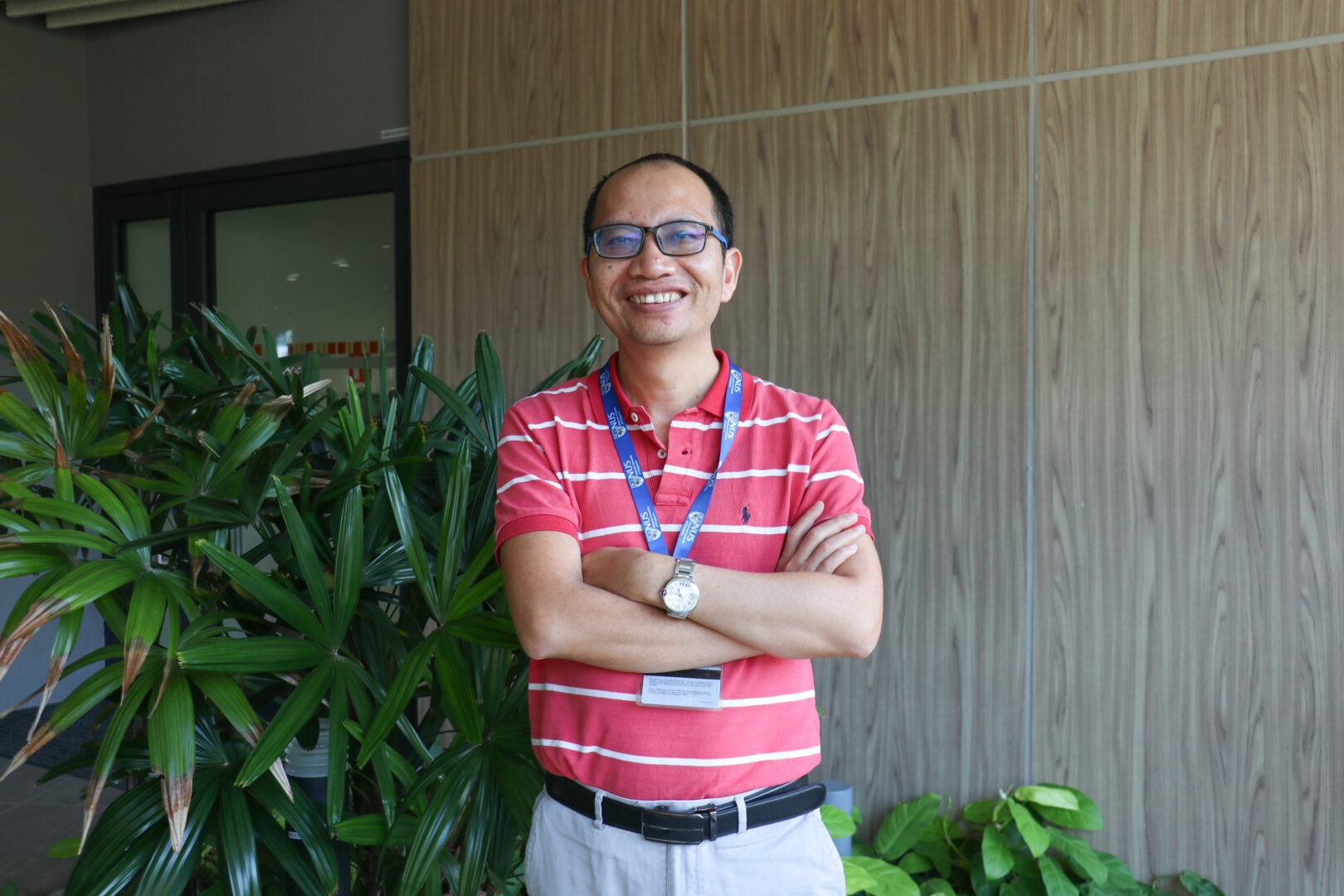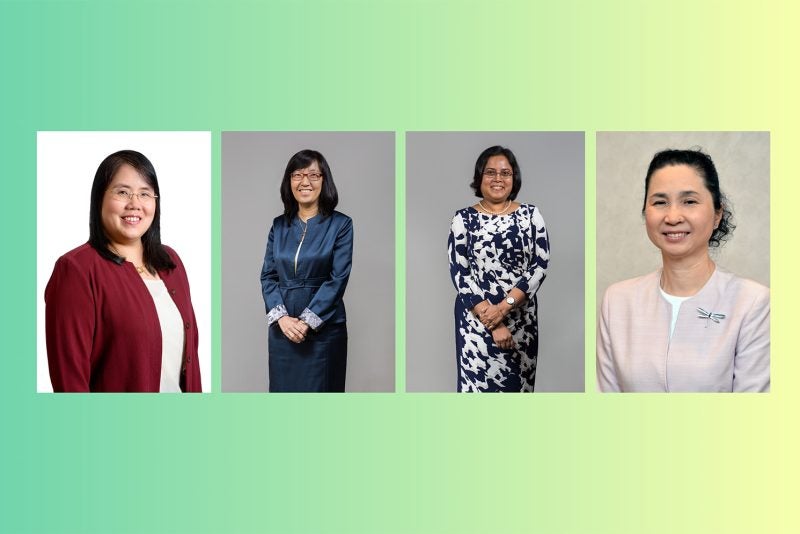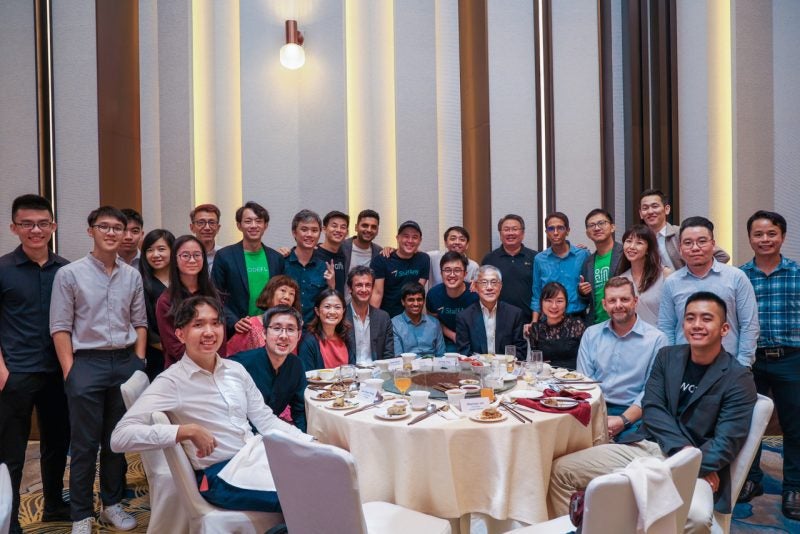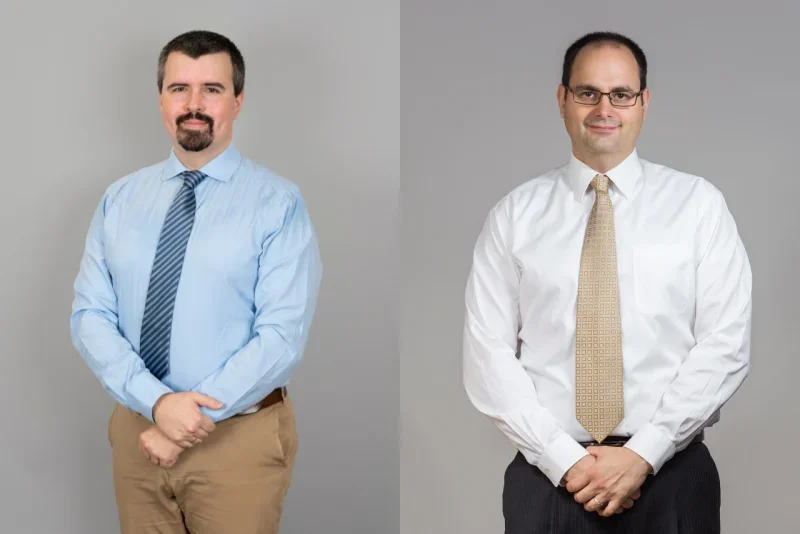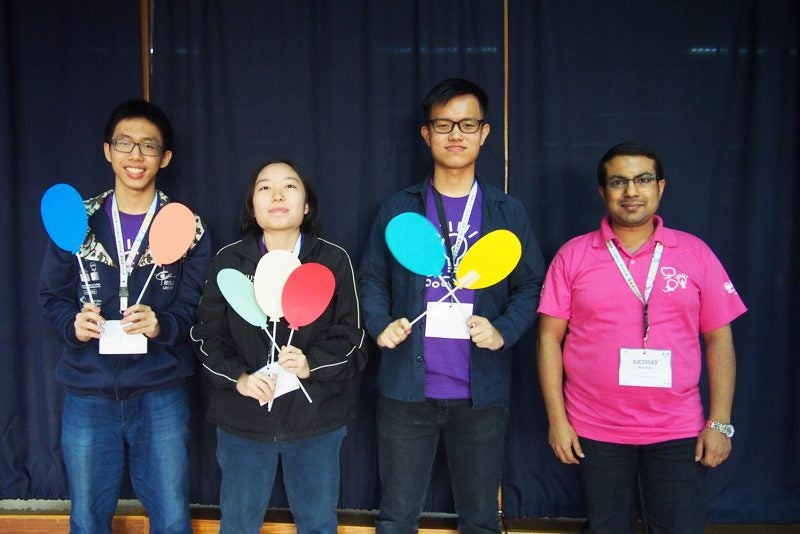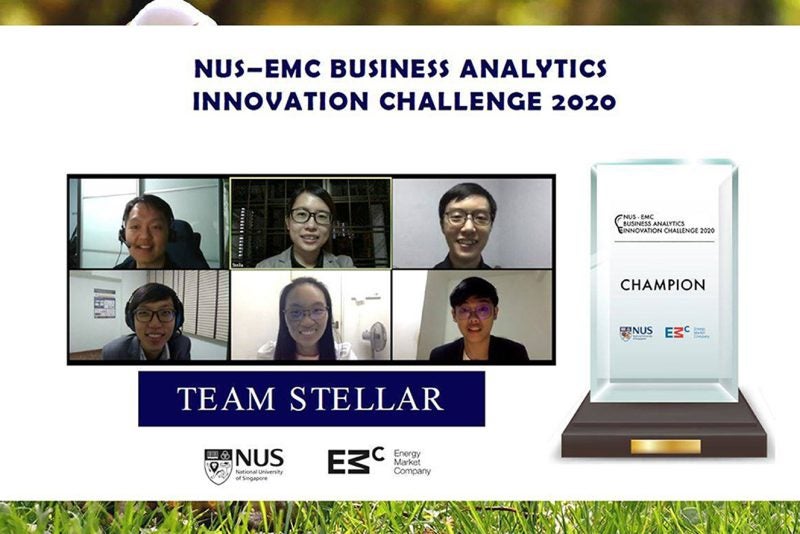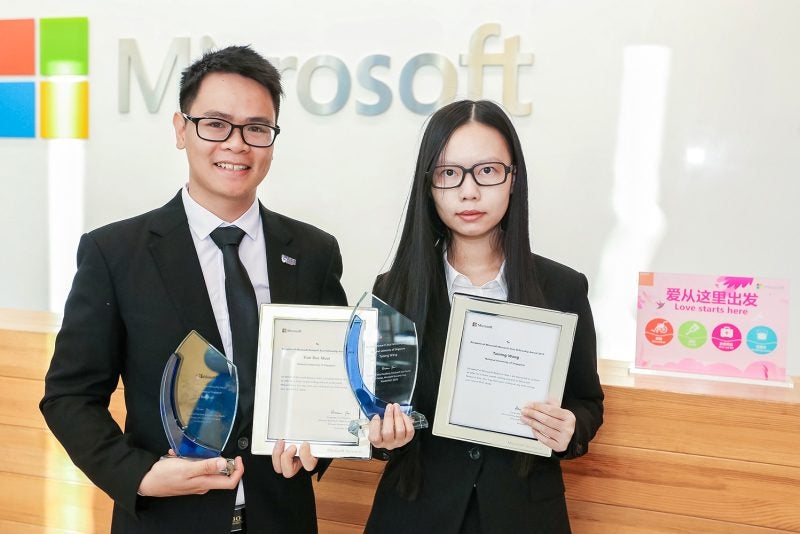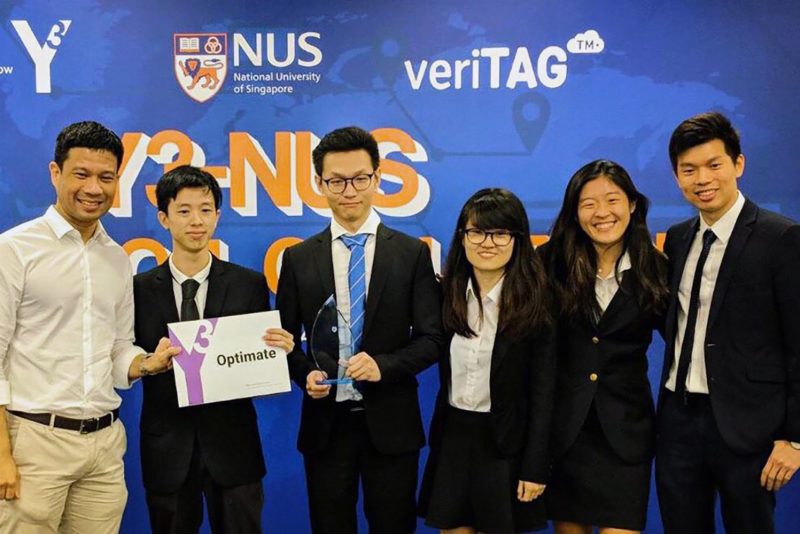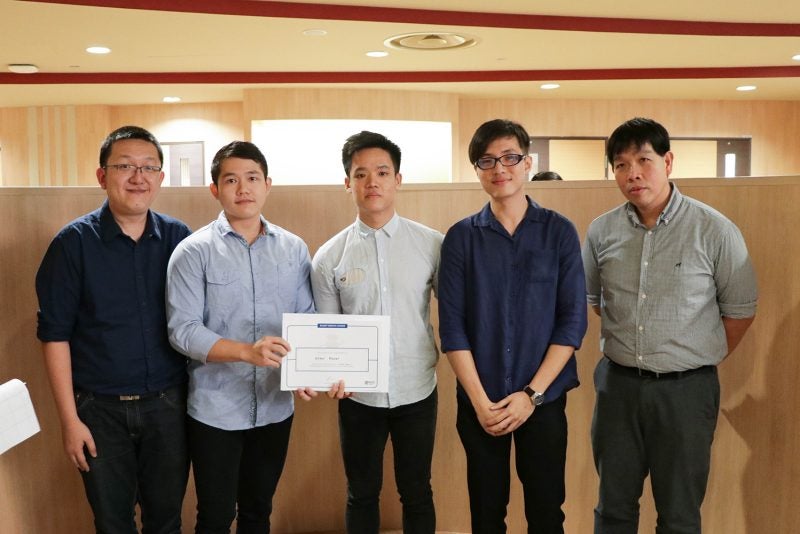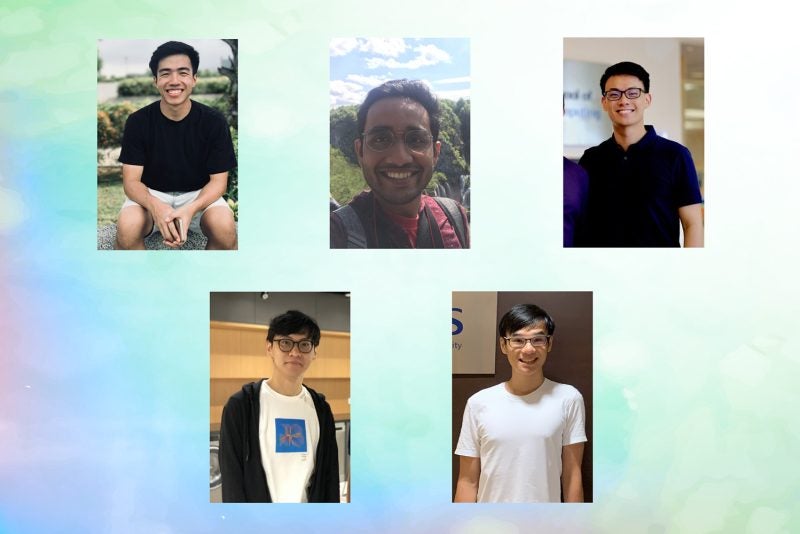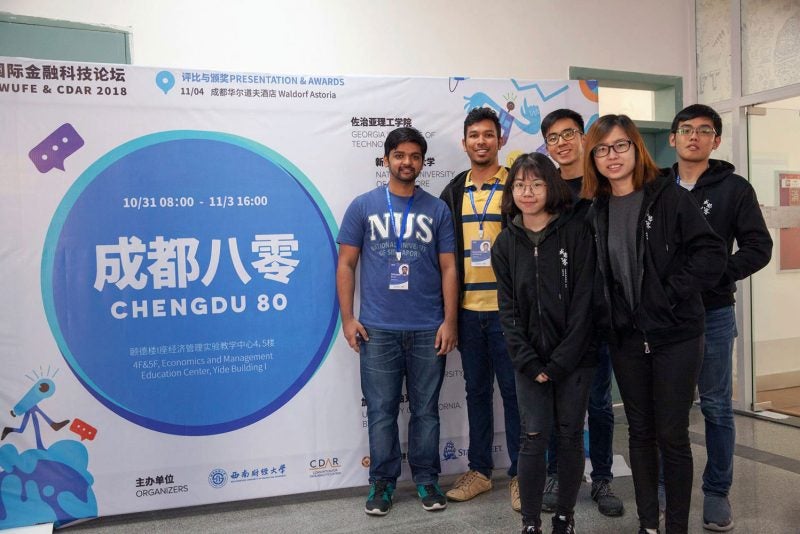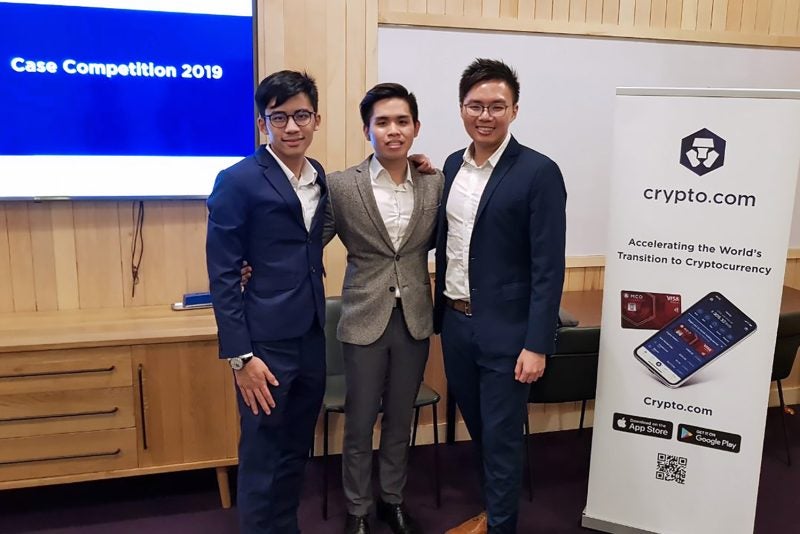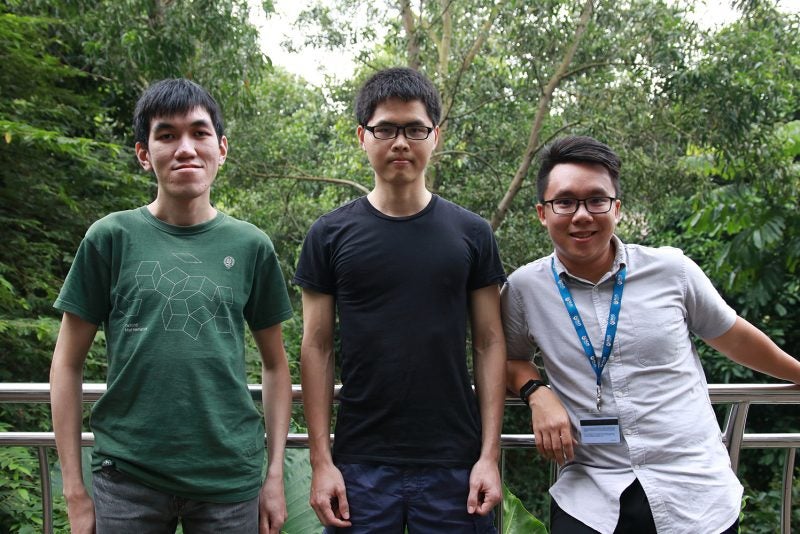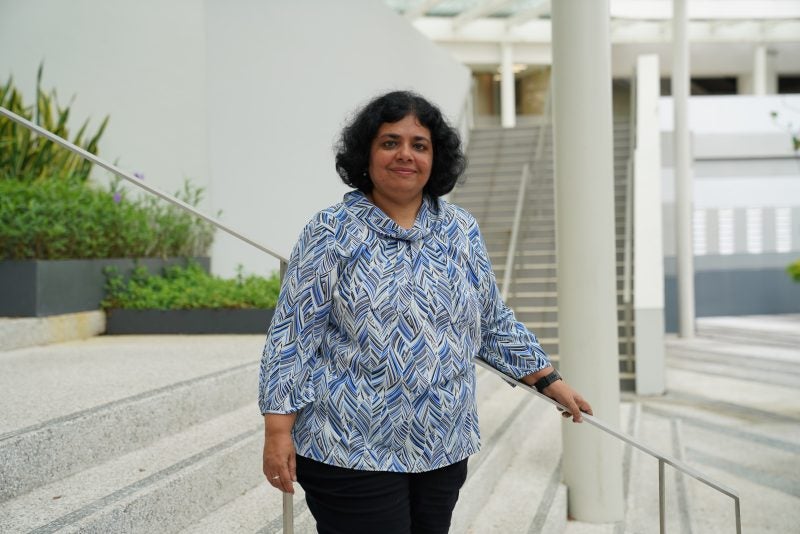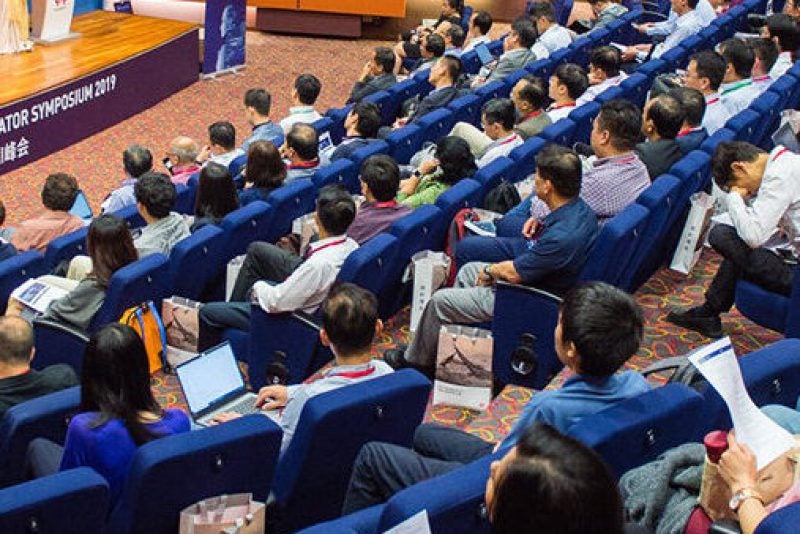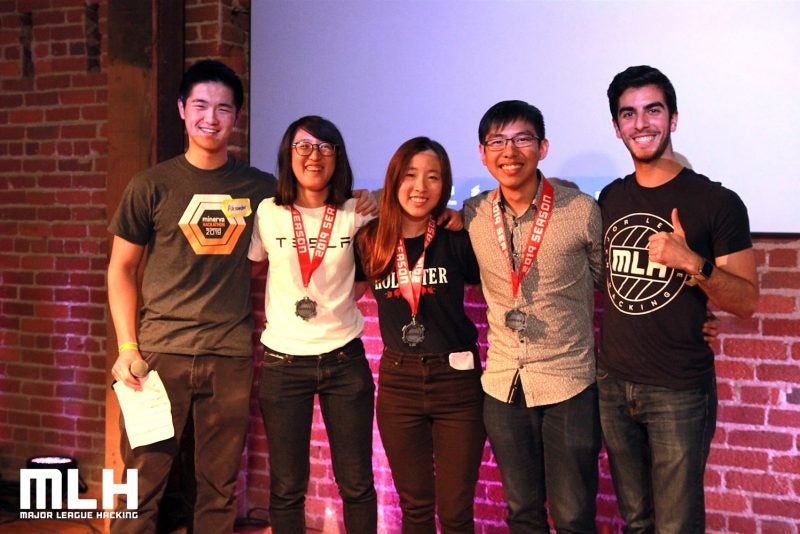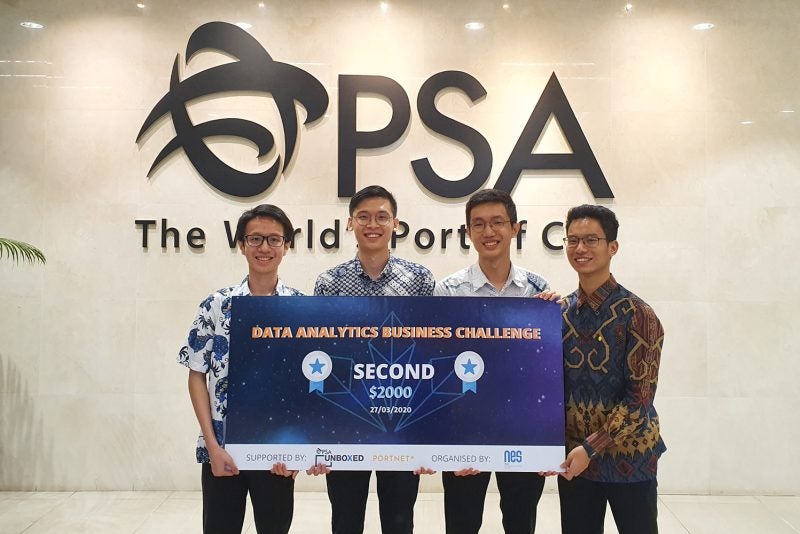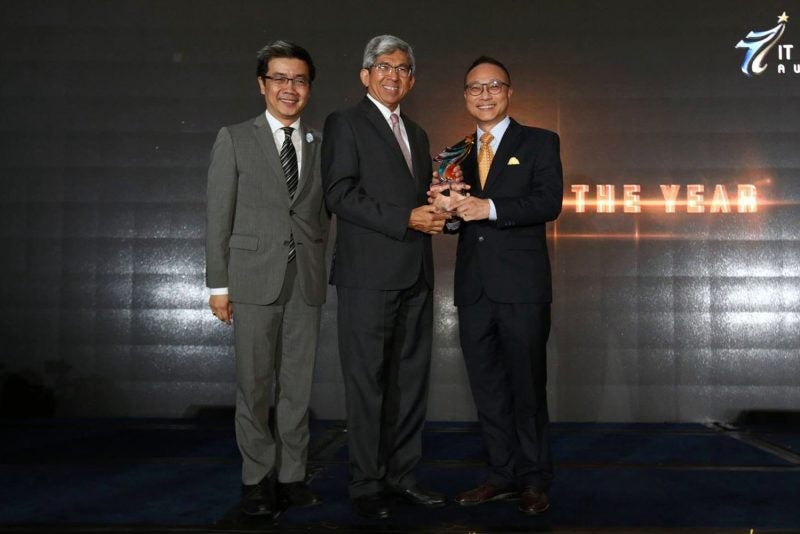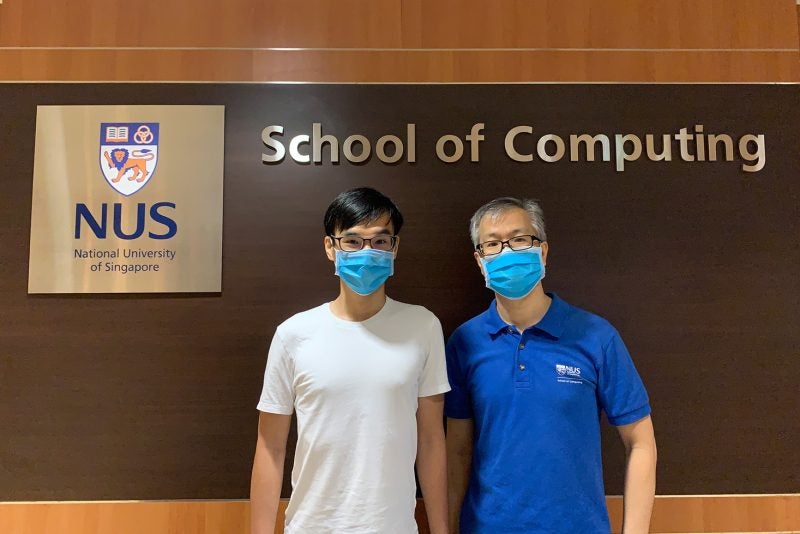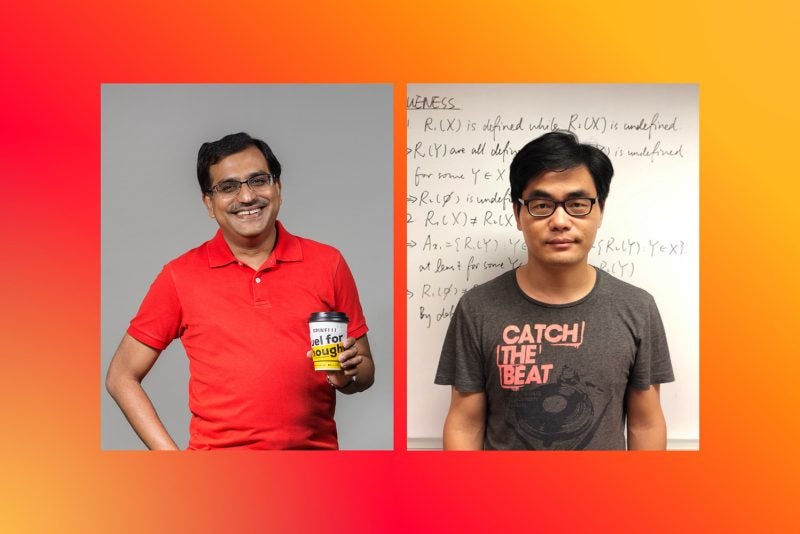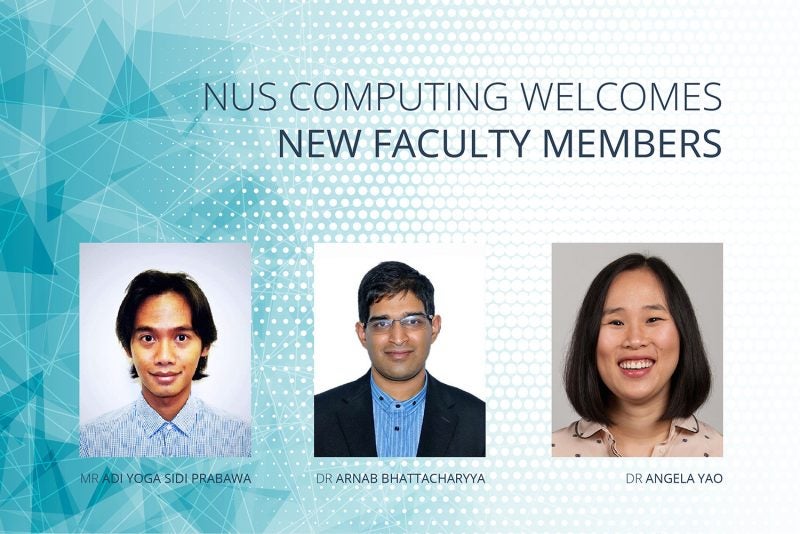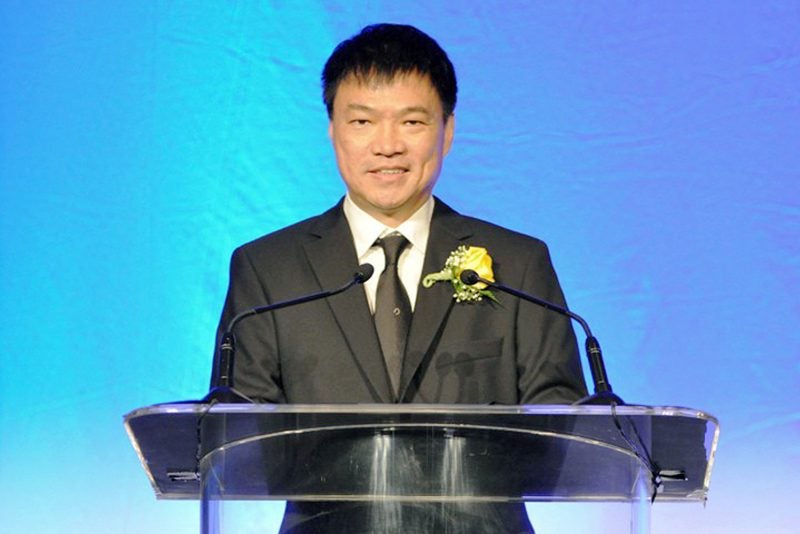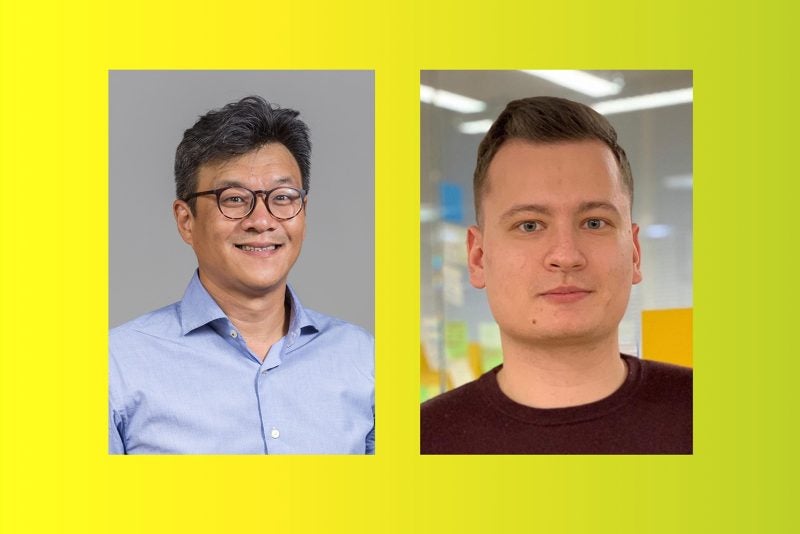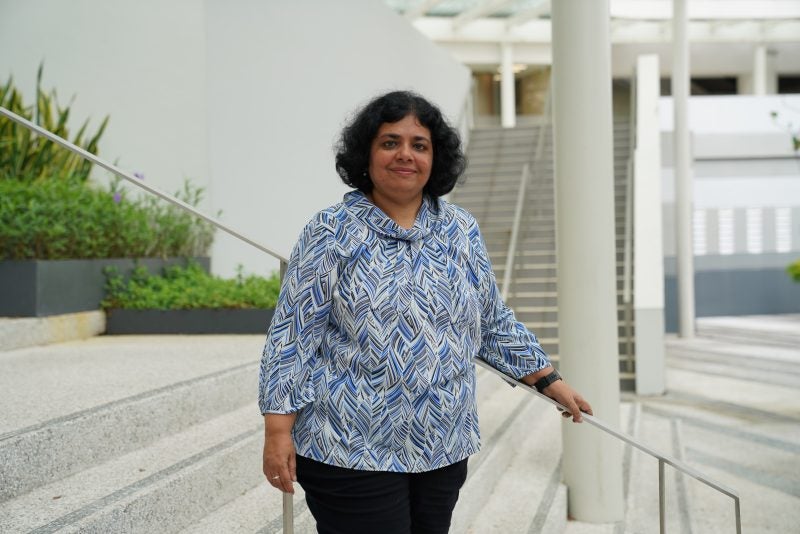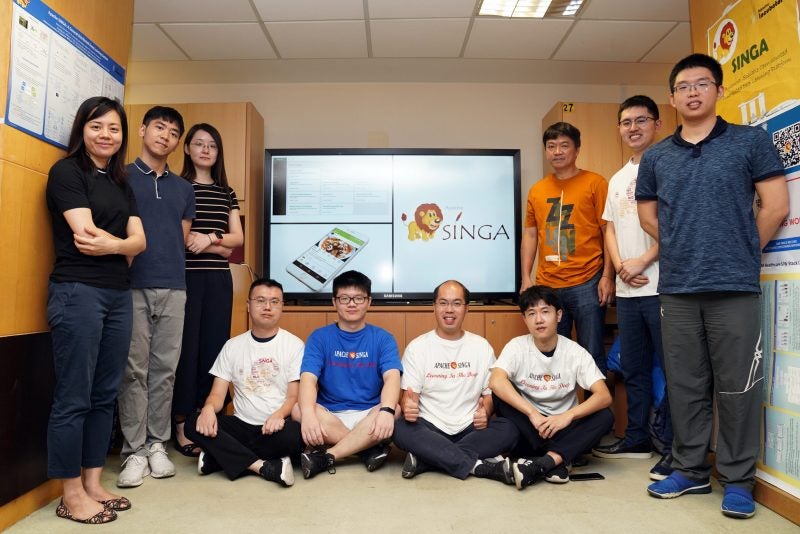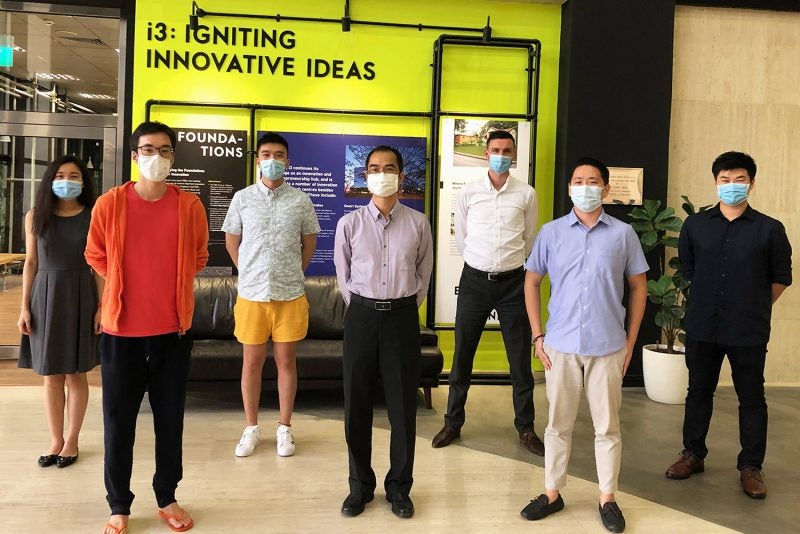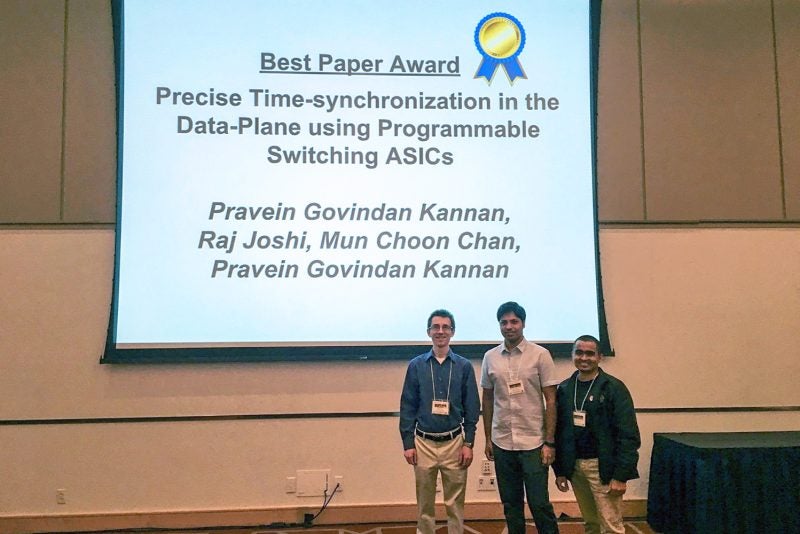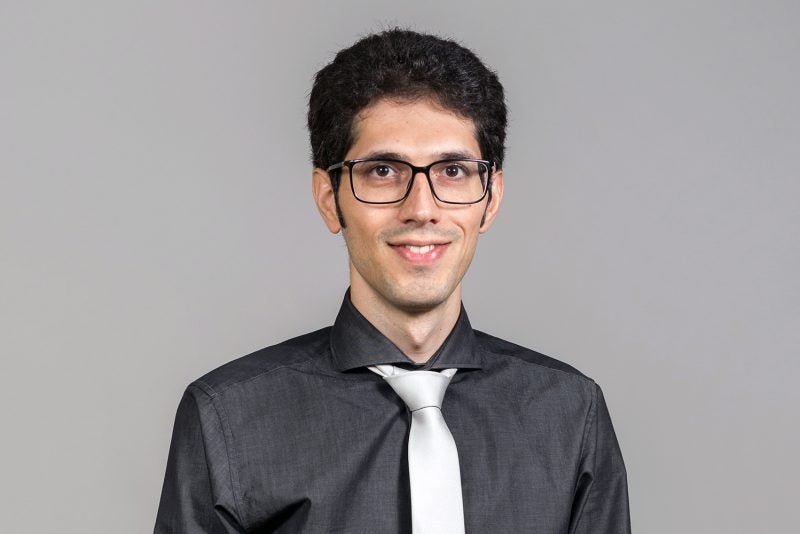From e-commerce, and social media to healthcare, technology has thoroughly permeated our lives and is rapidly changing our world. But amidst this transformative wave, where do these innovations come from?
Professor He Bingsheng is an indelible member of the NUS School of Computing community. He joined the school in May 2016 and became the Vice Dean of Research in July 2020. In the fourth instalment of the Conversation Series, we speak with him and delve deep into the heart of innovation at NUS Computing, exploring how their research initiatives have been shaping the future and making a real impact on our lives.
❈❈❈
Please introduce yourself, tell us about your career and the journey to your current role as Vice Dean of Research at NUS Computing.
My journey to becoming the Vice Dean of Research at NUS Computing began unexpectedly, amidst the unprecedented circumstances of the pandemic. While we were all navigating the challenges of lockdown, I received a call from Mohan, our former dean.
He shared with me the possibility of a new Vice Dean of Research and believed that I should step into this role. Despite the initial surprise, considering the ongoing COVID-19 situation and the fact that we were confined to our homes, the prospect piqued my interest.
After careful consideration, inspired by the opportunity to serve the school and contribute to its growth during such a critical time, I accepted the offer and officially started on July 1, 2020. I saw this as not just a new role but as an exciting journey to support and advance research.
This transition has since shaped my own growth in unexpected ways, and I am grateful for the opportunity to contribute to our community’s resilience and progress.
What is the basic mission of research at NUS Computing?
The mission of research at NUS Computing is guided by a dual-purpose vision that is aimed at both global research leadership and national contribution to Singapore’s societal and economic advancement.
Global Leadership: Our primary goal is to establish NUS Computing as a global hub for research excellence. We strive to be recognised globally as the premier destination for researchers from various disciplines within computing. This ambition extends beyond attracting top-tier faculty members; it encompasses fostering collaborative relationships with scholars and research institutions around the world and the region. Our commitment to creating an inclusive, dynamic research environment is fundamental to achieving this vision.
National Contribution: As a pillar of Singapore’s academic landscape, we are dedicated to ensuring our research initiatives align with and address the nation’s needs. We envision our research not just as an academic pursuit, but as a catalyst for societal and economic advancements in Singapore. By translating our cutting-edge research into tangible outcomes, we aim to make significant contributions to the country’s development and well-being.
Together, these objectives encapsulate our commitment to pushing the boundaries of knowledge in computing, while simultaneously contributing to the global research community and meeting the needs of our nation.
What is the scale and impact of research activities within NUS Computing?
With over 100 tenure-track faculty members, our community is intensely focused on research. This vibrant academic environment has consistently yielded significant contributions to knowledge in computing in terms of publications in leading computing conferences and journals. Our faculty have earned distinguished paper awards and research accolades across various fields, underscoring our commitment to excellence. In recent years, our researchers have been particularly recognised at premier conferences within artificial intelligence (AI), software engineering, and database systems, showcasing the breadth of our expertise.
Regarding research funding, the school is well-resourced, allowing us to support ambitious projects across a wide range of topics. This wealth of resources underpins our ability to pursue ground-breaking research that spans both the depth and breadth of computing. Our commitment to expanding the scope of our research is evident in our achievements in developing cutting-edge technologies in AI, databases, and beyond.
Moreover, we emphasise interdisciplinary collaboration, extending our research efforts to fields such as healthcare and sustainability. This approach not only enriches the depth of our inquiry—by pioneering deep tech innovations—but also broadens our impact, by integrating computing solutions with other disciplines to address complex societal challenges.
As we continue to grow, we aim to further enhance the depth and breadth of our research, cementing NUS Computing’s position as a leader in the global academic community and making substantial contributions to society through our work.
How do you see your role in enhancing NUS Computing’s reputation as a powerhouse of technological research globally? What are some of the research priorities for NUS Computing?
At NUS Computing, we are driven by a collective belief in the power of collaboration and shared purpose. Our vision for research excellence is not just a top-down directive but a communal aspiration that we hope every member of our community will embrace and contribute to.
As part of my role, I am dedicated to fostering an environment that empowers every individual to contribute their unique strengths. By doing so, we can collectively elevate our school to new heights of success and innovation. We have initiated various platforms to encourage collaboration and the exchange of ideas. This includes organising workshops with other NUS faculties and industry partners; and creating a vibrant space for our community to engage in meaningful dialogues and partnerships.
Furthermore, we actively pursue the creation of grand challenges and research programmes that align with our strategic objectives. These initiatives are not only focused on advancing our current research but also on setting the direction for our future investments, especially in areas where we aim to enhance our leadership and thought leadership.
Our current research priorities include bolstering our capabilities and resources in AI, aiming to not just lead in innovation but also resourcefulness and research impact. With the support of national initiatives, our ambition is to develop a comprehensive research ecosystem that extends beyond our school. By engaging with the broader NUS community, as well as national and international partners, we aspire to create a research landscape in Singapore and beyond that is dynamic, collaborative, and impactful. As a testament to our AI research efforts, our AI institute was also recently launched on March 25, 2024: NUS Artificial Intelligence Institute.
There are about 30 research centres and corporate labs within NUS Computing. Can you share some of the most notable ones and their recent achievements?
NUS Computing is home to numerous research centres that have achieved remarkable success in their respective fields. A prime example of this success is the AI Singapore-funded Jarvis project under the leadership of Professors Wynne Hsu, Lee Mong Li, and Ng See Kiong. The Jarvis project is at the forefront of addressing the “3H health problem” through innovative AI solutions. The “3H health problem” refers to patients who suffer from hyperlipidemia, hyperglycemia, and hypertension. Their work exemplifies the tangible progress and impact our research endeavours aim to achieve in addressing critical health challenges.
We have several other research centres that have also garnered significant achievements. Some of these centres include the NUS AI Institute, NUS-NCS Joint Laboratory Security, and NExT++. These centres are instrumental in pushing the boundaries of research in computing and technology, contributing to our school’s reputation as a leader in the field.
How does the Research function generate collaboration opportunities with government, funding agencies, and the industry?
We actively engage with funding agencies and government bodies to foster a supportive environment for research funding. This collaboration operates in a dynamic, bidirectional manner, ensuring mutual benefit and alignment of research goals with national and industry priorities.
One aspect of this collaboration involves direct engagement from government agencies such as the Economic Development Board (EDB) and the Infocomm Media Development Authority (IMDA). These agencies often initiate discussions with our school to explore state-of-the-art research in specific areas and seek our expertise for consultation. This engagement demonstrates the government’s interest in leveraging our research capabilities to advance technological and economic development.
Conversely, our faculty also proactively seeks support from funding agencies through various grants, such as the Competitive Research Programme (CRP) of the National Research Foundation or the T3 grants by the Ministry of Education (MOE). By applying for these grants, our principal investigators (PIs) can align our research projects with the strategic interests and requirements of government agencies, facilitating the translation of our research into practical applications.
Similarly, our interactions with industry partners are characterised by a reciprocal flow of engagement. Industry partners often approach us with specific challenges or areas of interest, seeking our expertise to address complex issues. In response, we identify and connect them with relevant faculty members for in-depth discussions and collaborative projects. This approach not only enriches our research but also ensures that our efforts are closely tied to real-world applications and industry needs.
How does the Research function attract talented researchers and students and position the university as an employer of choice in the global war for talent?
The Research Office plays a pivotal role in attracting and supporting top-tier talent. Our efforts are concentrated around two primary functions that are crucial for streamlining research grant administration and enhancing research opportunities for our faculty.
Streamlining Grant Management: Our first major function involves the efficient management of grants. We’ve made significant strides in streamlining processes for faculty startup grants and MOE T1 grants to minimise the administrative overhead for PIs. By simplifying paperwork and procedures, we aim to free up our researchers to focus more on their ground-breaking work. The challenge ahead lies in extending these efficiencies to manage larger grants, a crucial step for attracting and supporting more senior talents who often lead substantial research projects.
Expanding Research Opportunities: The second key function is to generate a wealth of research opportunities. By initiating grand challenges and comprehensive research programmes, we not only foster a vibrant research environment but also create a platform where faculty members can engage deeply in areas that align with their expertise and interests. These initiatives are designed to give researchers the freedom to explore and innovate within a supportive framework, thereby making our school an attractive destination for research talent.
Through these targeted functions, the Research Office is committed to enhancing our school’s research ecosystem, making it an ideal place for talent to thrive and contribute to the advancement of computing.
How do you ensure that NUS Computing’s research outputs are relevant and contribute to tangible ‘real-world’ benefits as a responsible institution committed to improving quality of life through technology?
The school places immense value on the real-world application and societal impact of our research. It’s a core part of our mission to align our efforts with national priorities and meet the specific needs of society. Our approach to translating research into tangible benefits for society is multi-faceted and deeply integrated with various sectors.
Collaboration with Government Agencies: One of the key strategies involves working closely not only within the university but also with government agencies. This collaboration allows us to offer technological insights for policymaking and contribute to the implementation of these policies in Singapore. By providing our expertise, we help ensure that technological advancements are effectively integrated into national strategies. For example, I have led the Foundational Research Capabilities (FRC) study on green computing, and IMDA is a very supportive government agency for this initiative. We have jointly hosted an industry round table to discuss the future of green computing in Singapore and industry.
Partnerships with Industry: Furthermore, our engagement with the industry is critical for bringing our research to life. Through these partnerships, we can translate academic discoveries into practical applications, thus driving innovation and contributing to economic growth. Examples that include joint laboratories with companies are Singtel, NCS, Grab, and Sea Group.
Talent Development: An essential aspect of our impact is the emphasis on talent development. Our graduate students and research staff are trained to be not just scholars but also leaders in their respective fields. Many have taken on significant roles within the government and industry sectors, further amplifying the school’s contribution to society.
Fostering Entrepreneurship: Lastly, the entrepreneurial spirit within our school is another channel through which we make a difference. Encouraging our students and faculty to transform research IP into startups allows for direct societal impact. These ventures not only serve as a testament to the practical value of our research but also contribute to job creation and economic diversity.
Together, these elements form the cornerstone of our commitment to leveraging research for the betterment of society. Through collaboration, innovation, talent development, and entrepreneurship, we strive to make a meaningful and lasting impact on both local and global communities.
How does the Research function manage commercialisation and technological transfer activities which contribute to economic development and position NUS Computing as a key player in regional and national innovation ecosystems?
Our efforts in startup development and commercialisation are primarily facilitated through a close collaboration with NUS Enterprise and our own early-stage incubator: Furnace. Recognising the unique challenges and opportunities presented by the computing field, especially in areas of deep tech and AI, we actively engage in dialogue with NUS Enterprise to tailor their programmes to better suit these domains. Given the fast-paced environment and intense competition these startups face, the support mechanisms provided must be both responsive and relevant.
We provide NUS Enterprise with targeted feedback, aiming to refine and enhance their offerings to meet the specific needs of computing-related startups. This collaboration ensures that our entrepreneurs are well-equipped to navigate the complexities of the tech startup landscape, fostering innovation and driving success in highly competitive markets.
Through this partnership, we strive to create a nurturing ecosystem that accelerates the journey from research to market for startups specialising in computing, deep tech, and AI, thereby contributing to broader technological advancement and economic growth.
Generative AI is clearly top-of-mind for decision-makers. How are you approaching AI research at NUS Computing? What are the key AI-related research initiatives? How is AI impacting research practices?
The school stands out with a vibrant and extensive array of research in AI, highlighting pioneering efforts in generative AI. Our endeavours span the full spectrum of AI, from ground-breaking theoretical work to pragmatic applications in fields like knowledge management and software development, among others.
At the heart of our foundational research are key domains such as equitable foundational models, deep learning, and federated learning, which are pivotal in shaping the AI landscape. Our commitment to equitable foundational models focuses on developing AI technologies that are both inclusive and ethical, addressing essential ethical concerns for the responsible use of AI technologies. Our deep learning research propels AI capabilities in areas such as pattern recognition, natural language understanding, and predictive modelling. Federated learning, on the other hand, is a breakthrough in privacy-centric AI, enabling the creation of models that leverage distributed data without compromising individual privacy.
Our holistic approach ensures we contribute significantly to both AI’s theoretical framework and the creation of practical tools and solutions for real-world issues. Through this broad research initiative, NUS Computing positions itself at the cutting edge of AI innovation, fostering knowledge advancement and the creation of impactful technologies.
Our AI research is marked by its comprehensive scope, depth, and ambition, encompassing everything from generative models to practical implementations across various sectors.
Some examples of our notable research in AI include a paper on narrative generation; large language models; a multimodal AI framework; and an AI-algorithm-based nudging project.
Spanning from foundational research to practical applications, our commitment to AI advancement is both innovative and attuned to real-world necessities. By encompassing the entire AI research landscape, from theoretical exploration to practical implementation, we are dedicated to leading the development of AI technologies that are transformative, ethical, and impactful.

